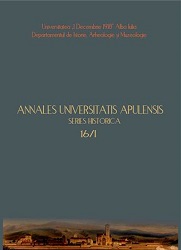The “manger” of the elites? The town council of Sibiu (ca. 1700-1750)
The “manger” of the elites? The town council of Sibiu (ca. 1700-1750)
Author(s): Sever Cristian OanceaSubject(s): Modern Age
Published by: Editura Mega Print SRL
Keywords: Social History; Early Modern Era; Transylvanian Saxons; Sibiu Town Council; Elites; Nepotism
Summary/Abstract: This article addresses the formation and consolidation of urban power elites during the first half of the eighteenth century. Drawing on the critiques expressed by the Lutheran pastor Georg Soterius, through the frame of Wolfgang Reinhard’s “classical” definition of social networks in the Early Modern Era, this study questions to what extent we may refer to an absolute apanage of the elites over the recruitment process. The article first addresses the meaning of “elites” and their main features in the eighteenth century, focusing on the mélange between old patrician regulations and new aristocratic trends, born in the context of the Habsburg reign in Transylvania. Secondly, it examines the empirical data regarding who was recruited to the town council and the percentage of non-Patrician town councilors. The findings concur with Gyula Székfű’s assertion that the town’s patriciate and pastor families represented one source of recruitment, but not the only one. A certain degree of social mobility can be observed, beyond that enabled by strategic marriages, which could be a result of individuals’ professional abilities; however, this hypothesis will have to be the focus of future research.
Journal: Annales Universitatis Apulensis Series Historica
- Issue Year: 20/2016
- Issue No: 1
- Page Range: 97-111
- Page Count: 15
- Language: English
- Content File-PDF

